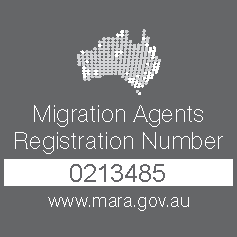The increase in the Temporary Skilled Migration Income Threshold (TSMIT) has affected quite a few industries in Australia that rely on overseas workers to fill labour shortages.
It was recently announced that the Skilled Migration Income Threshold (TSMIT) would increase from $53,900 to $70, 000 from 1st July 2023. At the time of the announcement, there was quite a bit of backlash from those in affected industries, particularly the restaurant industry. Since then, stakeholders in the hairdressing industry have spoken up.
Hairdressing will be hit hard by the increase in the Skilled Migration Income Threshold (TSMIT). Employee wages have always been low in the hairdressing industry with the current average salary for a hairdresser at $53,976 – a figure well below the increased Skilled Migration Income Threshold (TSMIT).
The increase in the Skilled Migration Income Threshold (TSMIT) doesn’t just affect wages and a business’s ability to pay overseas workers $70,000 it has other flow-on effects.
The Franchise Director of a popular retail hairdressing group has expressed concerns about the effect the increase in the Skilled Migration Income Threshold (TSMIT) will have on hairdressing businesses around the country. His concerns are valid and don’t just apply to the monetary implications but also the ethical aspect of the situation.
As an example, his business currently sponsors a stylist on a subclass 482 visa. This stylist will soon be eligible for permanent residence. Her salary is $55,000, above the current Skilled Migration Income Threshold (TSMIT) and the average wage for the industry.
The salon recently entered into an agreement to nominate another stylist for a subclass 482 visa. The agreed wage was $55,000 and she will be in a position to be nominated in August 2023. By the time August comes around, the salon owner will need to revise the agreement to meet the Skilled Migration Income Threshold (TSMIT) of $70,000.
Skilled Migration Income Threshold (TSMIT): It’s not just about the money
While an increase of $15,000 on top of the agreed amount is hefty, there are other factors that come into play. The salon owner does not feel he can consciously pay the new stylist this amount given his current stylist has been with him for four years and will still only be earning $55,000.
He has two options under the circumstances, either increase his current stylist’s wage to $70,000 or not employ the new stylist. Either of these options causes potential problems.

If the salon owner decides not to proceed with the new sponsorship, he doesn’t address the skills and labour shortage he and the industry are currently experiencing. If he goes ahead with the sponsorship and pays the $70,000, it could set off a chain reaction of negative outcomes. His net profit margin would likely be impacted so to be able to maintain his net profit margin, he would have to reallocate labour expenditure. In order to do this, he may choose not to employ an apprentice as apprentices generate very little income to offset labour costs. Not employing apprentices then causes another issue – it fails the government’s priorities of upskilling the local workforce and increasing the uptake of apprenticeships.
Of course, there is another alternative. Businesses could choose to pass on the increased labour costs to consumers by increasing prices. This may seem like a simple solution, but it could result in a decrease in foot traffic for businesses. Either way businesses will feel an impact.
This plight is being experienced by hairdressers nationally and may unfortunately result in hairdressing salons no longer being able to employ international workers.
The hairdressing industry is just one more example of how the increase in the Skilled Migration Income Threshold (TSMIT) has perhaps not been well thought out when it comes to particular industries.
Stakeholders in the hairdressing industry are not against an increase in wages within the industry. They also fully support those wishing to work in Australia and assist with addressing skills shortages, but the government has made it increasingly difficult. They fear the decrease in skills within the industry will impact the customer experience negatively.
If you are an employer in the hairdressing industry and have questions or concerns about the increase in the Skilled Migration Income Threshold (TSMIT), contact the experienced team of registered migration agents at Visa Solutions Australia. Book a consultation.







